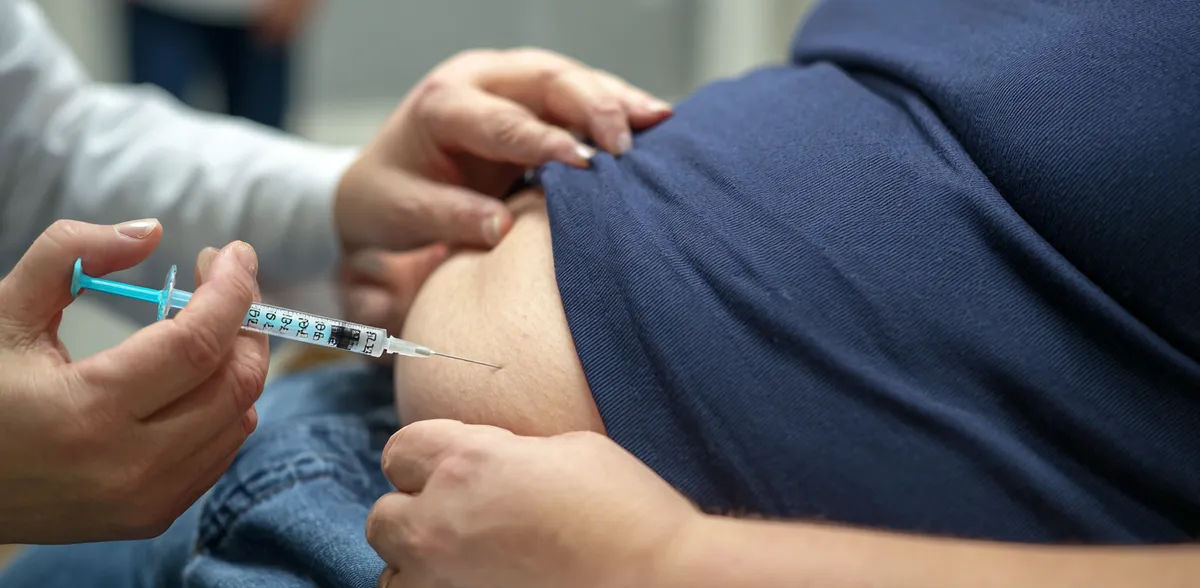Type 2 diabetes: Promising new active ingredient discovered without side effects for the heart and circulation
Improved effect of "weight loss injections"
Advertisement
In type 2 diabetes, formerly known as adult-onset diabetes, the body's cells are no longer able to absorb sugar from the blood. One possible therapeutic approach is therefore to increase glucose uptake in the cells again. Although it has been known for some time that the active ingredient class of beta-adrenergic agonists has precisely this effect, their use has not been possible until now due to dangerous effects on the cardiovascular system.
Researchers at the Dr. Margarete Fischer-Bosch Institute for Clinical Pharmacology (IKP), the Karolinska Institute in Sweden, Stockholm University, the company Atrogi and other partners have now identified a promising candidate from this class of drugs that lowers blood sugar without leading to the undesirable side effects. And it even has a positive side effect: the active ingredient could improve the effect of those diabetes drugs that are also used as "weight loss injections", as it prevents the loss of muscle mass caused by them.
Virtual screening of millions of molecules
The decisive starting point was that the adrenergic receptor acts via two different signaling pathways - one lowers blood sugar, the other causes the characteristic effects on blood pressure and heart rate and can cause dangerous cardiovascular symptoms if activated for a long time. "Our aim was to decouple the undesirable side effects on the heart and circulation from the blood sugar-lowering signaling pathway of this receptor," explains Prof. Dr. Volker M. Lauschke, Deputy Director of the IKP. "To this end, our colleagues at Stockholm University analyzed millions of molecules using virtual screening and came across the active substance ATR-258. We then tested it in vitro for its signaling pathway activation."
Promising results in cell cultures were followed by preclinical studies and finally a phase I clinical trial in which 48 healthy volunteers and 25 type 2 diabetics were observed over a period of six months. "The studies showed that ATR-258 significantly and sustainably reduced blood glucose levels, while we did not observe any negative effects on heart rate or arrhythmias," explains Lauschke.
Improved effect of "weight loss injections"
The second remarkable result of the study is that the active ingredient can improve incretin-based diabetes medications, which are also used as "weight loss injections". These increase insulin production, curb appetite and lead to weight loss. The problem is that patients not only lose fat mass, but also muscle mass. In combination with the new active ingredient, this unwanted muscle loss can be prevented.
The findings of the study therefore provide a promising basis for the development of a new drug for the treatment of type 2 diabetes - which can ultimately be administered orally and does not have to be injected. The next step is to investigate its efficacy in a phase II study.
Note: This article has been translated using a computer system without human intervention. LUMITOS offers these automatic translations to present a wider range of current news. Since this article has been translated with automatic translation, it is possible that it contains errors in vocabulary, syntax or grammar. The original article in German can be found here.
Original publication
Aikaterini Motso, Benjamin Pelcman, Anastasia Kalinovich, Nour Aldin Kahlous, Muhammad Hamza Bokhari, Nodi Dehvari, Carina Halleskog, Erik Waara, Jasper de Jong, Elizabeth Cheesman, Christine Kallenberg, Gopala Krishna Yakala, Praerona Murad, Erika Wetterdal, Pia Andersson, Sten van Beek, Anna Sandström, Diane Natacha Alleluia, Emanuela Talamonti, Sonia Youhanna, ... "GRK-biased adrenergic agonists for the treatment of type 2 diabetes and obesity"; Cell
























































